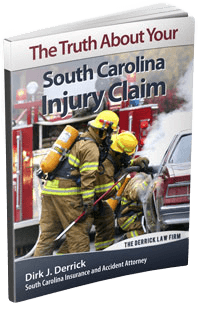After the accident, however, this valuable recorded data will be in the possession of the trucking company, which is not likely to make it available to you willingly if it proves the trucker’s or the company’s liability.
Preserving Black Box Evidence
The black box data might be automatically erased after 30 days or even sooner. It’s also possible the company could intentionally erase it to destroy evidence of fault in the crash. The best way to prevent the loss of this evidence is to contact a truck accident attorney as soon as possible after your wreck. Your attorney can send a preservation-of-evidence letter (sometimes called a spoliation letter) to the trucking company to advise them that the data is important evidence in an impending insurance claim or lawsuit and may not be erased or destroyed. Once it receives this notice, the trucking company must preserve the evidence or face legal consequences, so it’s very important to take action quickly. Most truck lawyers will evaluate your claim, explain your options, decide whether or not to represent you, and get started right away on your case, so you have much to gain and little to lose by contacting an attorney as soon as possible.
Holding Multiple Defendants Accountable
After examining the black box evidence, your attorney can file claims or lawsuits, if necessary, against all potential defendants in the accident. The trucker, the trucking company, a leasing agency, the truck manufacturer, a parts manufacturer, a repair service, or even cargo-loading personnel might bear partial responsibility for your damages. Each of these defendants could have a different insurer against which you may file a claim. The job of determining their respective percentages of fault, filing multiple insurance claims against them, negotiating for reasonable settlements, and filing more than one lawsuit if necessary is best left to an experienced truck accident lawyer while you focus on recovering from your injuries. Your attorney can also make sure you meet all the court’s requirements, deadlines, and evidentiary rules so that you don’t lose your chance for fair compensation because of a legal technicality.
|
Related Links: |

 According to the National Highway Traffic Safety Administration (NHTSA), more than 100,000 people across the country are injured in truck accidents each year, and thousands of truck wrecks are fatal. If you’re struck by a commercial tractor-trailer while driving a smaller passenger car or SUV, you could sustain
According to the National Highway Traffic Safety Administration (NHTSA), more than 100,000 people across the country are injured in truck accidents each year, and thousands of truck wrecks are fatal. If you’re struck by a commercial tractor-trailer while driving a smaller passenger car or SUV, you could sustain 
